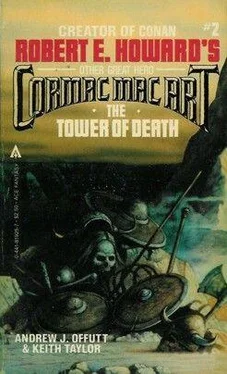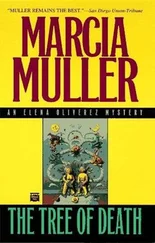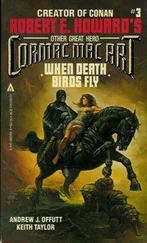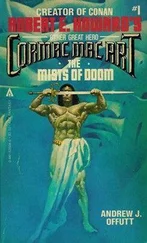Andrew Offutt - The Tower of Death
Здесь есть возможность читать онлайн «Andrew Offutt - The Tower of Death» весь текст электронной книги совершенно бесплатно (целиком полную версию без сокращений). В некоторых случаях можно слушать аудио, скачать через торрент в формате fb2 и присутствует краткое содержание. Жанр: Фэнтези, на английском языке. Описание произведения, (предисловие) а так же отзывы посетителей доступны на портале библиотеки ЛибКат.
- Название:The Tower of Death
- Автор:
- Жанр:
- Год:неизвестен
- ISBN:нет данных
- Рейтинг книги:3 / 5. Голосов: 1
-
Избранное:Добавить в избранное
- Отзывы:
-
Ваша оценка:
- 60
- 1
- 2
- 3
- 4
- 5
The Tower of Death: краткое содержание, описание и аннотация
Предлагаем к чтению аннотацию, описание, краткое содержание или предисловие (зависит от того, что написал сам автор книги «The Tower of Death»). Если вы не нашли необходимую информацию о книге — напишите в комментариях, мы постараемся отыскать её.
The Tower of Death — читать онлайн бесплатно полную книгу (весь текст) целиком
Ниже представлен текст книги, разбитый по страницам. Система сохранения места последней прочитанной страницы, позволяет с удобством читать онлайн бесплатно книгу «The Tower of Death», без необходимости каждый раз заново искать на чём Вы остановились. Поставьте закладку, и сможете в любой момент перейти на страницу, на которой закончили чтение.
Интервал:
Закладка:
“Surely, brother,” she said, in a quite high voice fresh with youth, “this is the boldest and most outspoken man ever to stand before you in this hall!”
Madb’s breasts , Cormac thought, his sister! Another damned unwed princess! The bane of my life!
“Surely!” Veremund called, with his laughter slowly waning. And then he stopped it on a sudden, and looked full at her. “And one of the most dangerous, Eurica.”
“Then why does he wear his weapons?”
“Because, my dear sister, it were doubly dangerous to seek to deprive a brave man of pride of his weapons,” and Cormac knew this king was wise.
She gazed coolly upon Cormac. “Then might it not be wise to have him slain at once and scour our shores for his Danish comrade and others who may be hiding?”
Cormac mac Art kept his gaze on the king, and did not twitch his eyebrows. He looked cool, rather than dangerous-which assured observant men of wisdom that he was indeed a dangerous man.
“My sister is not known to be a fool, Cormac mac Art.”
So it’s to be a test, is it, and originating in this little girl all excited about the big pirate from the sea! “Indeed, lord King. The Lady Eurica may speak true, though detention were ever wiser than slaying out of hand-or attempting to do.”
Someone laughed. Eurica stared angrily. Her brother now kept his eyebrows steady.
“It is true,” Cormac added, “that though I pledge no acts against you or any of your people, kindness for kindness, neither Wulfhere nor I will vow fealty to yourself-or any other.”
The small female voice piped, “Or to me, Cormac mac Art of Hivernia?”
Cormac ignored her, continuing to gaze at her brother. The girl stamped her foot.
“Ye make my lady sister no reply, Cormac mac Art?”
“Lord King. My business here is audience with the King of the Suevi, who would be building a navy-and who has another problem that comes not from this natural world, surely. I’m after standing before kings erenow, and know how to behave. It’s fearful I am of doing insult on my lord by answering the queries of someone my lord King has not given permission to question me.”
The thick silence that followed those words might have presented challenge to the well-sharpened blade of Cormac’s dagger. Then the lady Princess Eurica rose with swift youthful sinuousness and a rustling of white skirts. Her sky-blue eyes flashed under darkened, downdrawn brows.
“As you said, lady sister, the boldest and most outspoken man to come before us. And… his point is well taken.” Veremund looked mildly up at his sister, who, thoughtlessly, with her anger on her, now stood higher than a king.
“I’ll not be chastised by a reaver from oversea and him with the stench of kelp about him!”
“Lord King,” Cormac said quietly, “as it’s naught but your good will I’m wishing, I make apology for bearing still the stench of that unholy stuff that slew your sea-tower watch… and I make apology too to your royal self for having angered your lady sister.”
Standing close beside her seated brother, Eurica stamped her foot. “And still he speaks not to me, nor looks at me! ”
The Gael pressed his lips together. With slow deliberation and as if stiff of neck, he turned his head just enough to look into the anger-bright blue eyes of the Lady Eurica, who appeared very young indeed. He studied her face for a space, then moved his gaze slowly down her slim, white-clad form to her very toes in their beaded felt slippers, and then back up again, as slowly, to her face. It flamed, now. She stared. Her mouth worked and silver flashed as her bosom heaved. Her hands formed knobby little fists.
With slow deliberation, Cormac gave his head the quarter-turn necessary to return his gaze to her brother.
Himself no fool, Veremund rose to end the tension. He made a snuffing sound in his throat. “We must needs bring Wulfhere Skull-splitter among us, Cormac the Bold.”
“Cormac the Rude!”
“Unseemly, lady sister,” Veremund said, without looking at her he now made seem small, by his standing beside her. He was the king; she was a girl in her midteens, unmarried because he was still pondering, Cormac was sure, the options open to form alliances.
Veremund descended the two steps of the little dais on which rested his throne of oak set with gold and coral, and rune-carved. Eurica need not be embarrassingly dismissed; the king, with the Gael, was leaving her presence. As Veremund walked to Cormac and bade him accompany him, only his topknot brought him an inch above the Gael’s height of six feet.
“Ah-please have the Lady Clodia seen to, Zarabdas,” the king said, and he and Cormac mac Art left the chamber and the hall.
The king and a little retinue of fighting men rode with Cormac, whose shout soon fetched up Wulfhere and the others. And still others, to the astonishment and consternation of the men set to watch Raven . Veremund ordered the setting up of two pavilions without the gates of the old city for the crew of Raven , and he turned to the Gael.
“Unless ye’ll not be separated from your men, Cormac mac Art, you and Wulfhere will be quartered in my own hall.”
Cormac bowed his head, and looked at the giant ambling toward them.
“The king would have converse with us, Wulfhere.”
Wulfhere nodded, beaming, and shifted his grip on an ax whose weight should by now have stretched his right arm to his ankle. “Be there ale in Galicia?”
CHAPTER SEVEN: Bargain in Silver
There was ale in Galicia. Veremund and his people though, like the Romans, were drinkers of wine. Wulfhere downed a great mug of ale for his thirst before swiftly tucking away a flagon of wine to make his hosts happy. Then he was ready for ale again, and his hosts, seeing what sort of respect he had for their wine, did not say him nay.
In a low-beamed room whose walls were hung with draperies and tapestries that helped retain heat in winter and to ward it off in summer, they conferred: Veremund the King, and Cormac of Connacht in Eirrin, and Wulfhere of the land of the Danes-Dane-terre, Veremund’s people called it, for all the folk of this continent were more Romanized than they knew.
With them were Veremund’s tawny-moustached cousin and adviser, Irnic Break-ax; and the lean, bald, robed man of fifty or so years. Zarabdas of Palmyra his name, and him in a silver purfled, black-girt robe of aquamarine blue. From his belt hung an almoner of black leather. A ring gleamed with the dullness of gold on one knob-knuckled finger: a very old ring that seemed to consist of two twined serpents. A segmented sigil glinted on his breast, slung by a silver chain around his neck: a circle with wings. A winged sun, Cormac surmised, though it was no druidic emblem.
Zarabdas took ale but scant touched his lips to the glazed mug of vermilion pottery. Irnic had wine set before him in a goblet of beaten silver set with blue stones of some sort and what appeared, impressively, to be an emerald. He did not touch it. If a man of Irnic’s height-which was far from great-should have weighed a hundred and seventy pounds, Irnic probably carried fifteen pounds more. Nor, Cormac thought, impressed with the gaunt-faced fellow’s control and condition, could there be an ounce of fat on him. Irnic Break-ax was built for fighting.
The Gael had naturally been prepared to dislike the king, and instead liked him; the fellow wasn’t a monarch, he was a man! As for a king’s cousin made adviser-he should have been fat and impossible. The Lord Irnic was neither, and Cormac gave him respect.
As for the dusky man from the palmy deserts around ancient Palmyra, the fellow had the feel of sorcery about him, and only one sorcerer had Cormac mac Art ever trusted.
Читать дальшеИнтервал:
Закладка:
Похожие книги на «The Tower of Death»
Представляем Вашему вниманию похожие книги на «The Tower of Death» списком для выбора. Мы отобрали схожую по названию и смыслу литературу в надежде предоставить читателям больше вариантов отыскать новые, интересные, ещё непрочитанные произведения.
Обсуждение, отзывы о книге «The Tower of Death» и просто собственные мнения читателей. Оставьте ваши комментарии, напишите, что Вы думаете о произведении, его смысле или главных героях. Укажите что конкретно понравилось, а что нет, и почему Вы так считаете.












